When the new year rolls around, many people have begun embracing a very specific resolution: Dry January, which challenges people to abstain from alcohol for the entire month.
Originating in the United Kingdom, this public health campaign has made inroads in the United States and Europe as a way to combat the excesses of the holiday season. Belgium has its own version, Tournée Minérale (“Mineral Tour”), which takes place during the month of February.
If you’re planning on embarking on either, or both, or just exploring the possibilities of non-alcoholic beer, you’re not alone.
According to recent statistics from the Brewers of Europe association, alcohol-free beer, also referred to as non-alcoholic beer and defined in Europe as beer with an ABV of 0.5 per cent or below, now makes up around six per cent of the European beer market, compared to just over three per cent a decade ago.
Essentially, one in every 15 beers sold in the bloc is non-alcoholic, and this growth is forecast to continue.
The reasons for this evolution are some of the same reasons that young people in many countries are drinking less than previous generations, including a greater understanding of the negative health effects of alcohol.
But it is also because recent advances in technical brewing science have improved the quality of non-alcoholic beers.
Whereas traditional dealcoholisation processes often resulted in a loss of flavour, unintended residual sweetness and a shorter shelf-life, newer methods – including reverse osmosis, vacuum distillation and newer yeasts which do not ferment malt sugars – have proven better at maintaining a beer’s aromas, flavours and nutritional values.
It turns out that when non-alcoholic beers taste better, more people drink them.
Here are five non-alcoholic beers to try, each with their own unique flavour, national provenance and quirky character.
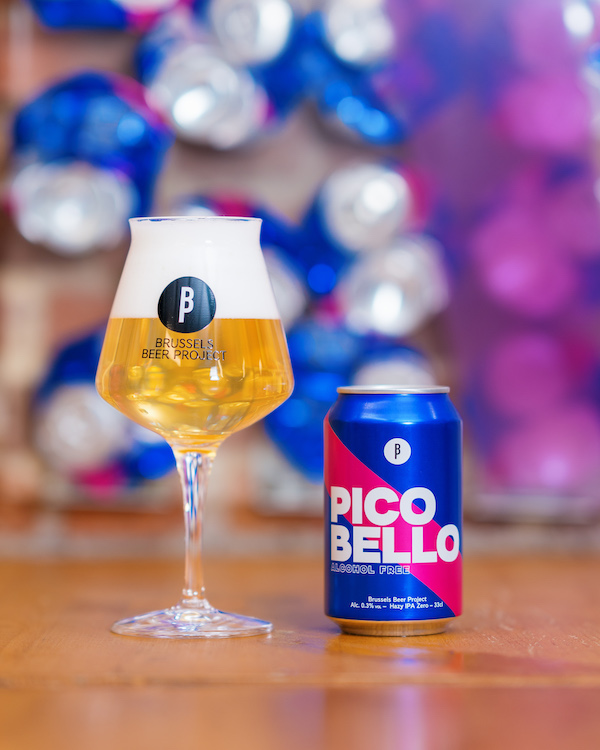 Photo courtesy of Brussels Beer Project
Photo courtesy of Brussels Beer Project
Pico Bello – Brussels Beer Project, Belgium
Hazy Sour IPA, 0.3 per cent ABV
Billed by Brussels Beer Project as “the first Belgian alcohol-free craft beer” when it launched in 2019, Pico Bello is a hazy Sour IPA brewed using a specific yeast strain which creates fruity esters but minimal alcohol. It is an approach very different from the process of dealcoholisation used to produce many non-alcoholic beers which tends to strip out flavour compounds and body. Low ABV is not out of character for Brussels Beer Project; since it was established in 2013, the company has brewed more than 30 beers under five per cent ABV, enjoying success in recent years with beers such as Wunder Lager (3.8 per cent ABV) and Super Session (2.9 per cent ABV). Pico Bello offers a fruity hoppiness, a subtle bitterness and refreshing acidity.
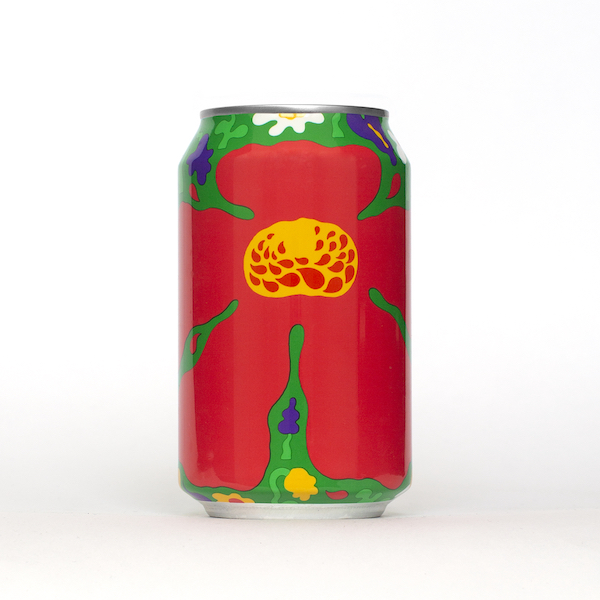 Photo: Gustav Karlsson Frost
Photo: Gustav Karlsson Frost
Blåbärssoppa – Omnipollo, Sweden
Sour Pale Ale brewed with blueberries and vanilla, 0.3 per cent ABV
Literally translated as “blueberry soup”, Blåbärssoppa is a fruited homage to the thick porridge-like soup traditionally served as a childhood treat in Sweden or to skiers seeking an energy-rich hit. Colourful can artwork from Stockholm-based visual artist Karl Grandin sets the tone for the deep purple colour of the beer and its playful pink foam. Once you dive in, it is all sweet berries – it is, after all, brewed with “lots and lots of blueberries” according to Omnipollo – and lemon curd tang. The real blueberry soup is also used in Nordic countries to combat gastrointestinal ailments, so get that blueberry ale into your stomach after those indulgent festive dinners and exuberant new year celebrations.
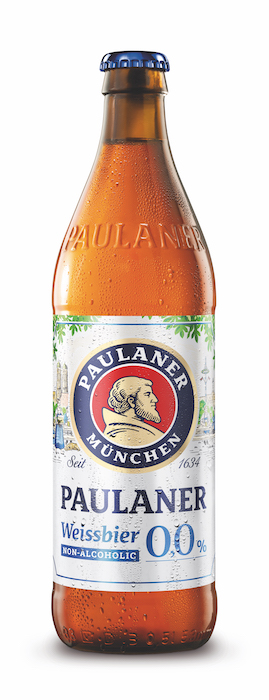 Photo courtesy of Paulaner
Photo courtesy of Paulaner
Paulaner Weissbier Non-Alcoholic – Paulaner Brauerei, Germany
Weissbier, 0.5 per cent ABV
The non-alcoholic version of Paulaner’s classic Weissbier is your pick if you’re looking for a naturally cloudy German wheat ale without the booze or calories of its iconic 5.5 per cent ABV cousin. There’s plenty of action here, whether it’s the tangy, fresh and creamy nature of the various malted wheat varieties deployed or the banana-forward fermentation profile. And even though bitterness is subdued and hop character subtle, the robust nature of the Herkules hop still comes through, adding a spicy and floral touch, with notes of melon, black pepper and hints of pine in the finish.
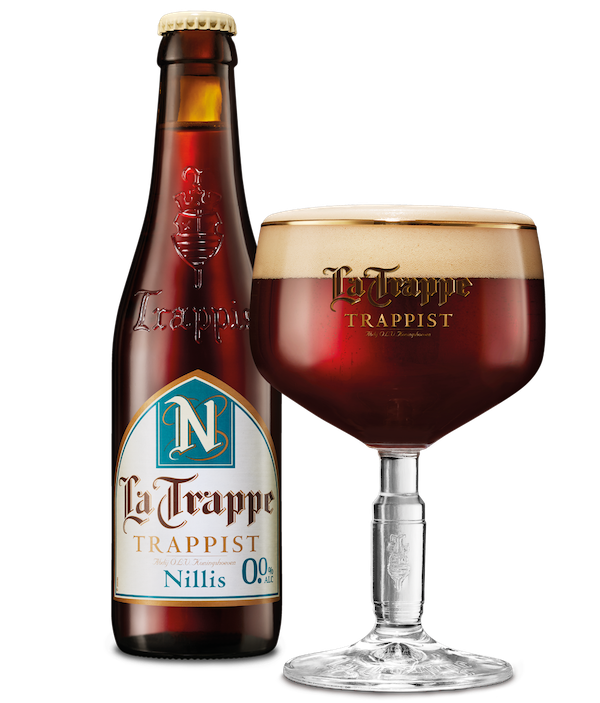 Photo courtesy of Bierbrouwerij De Koningshoeven
Photo courtesy of Bierbrouwerij De Koningshoeven
La Trappe Nillis – Bierbrouwerij De Koningshoeven, the Netherlands
Amber Ale, 0.0 per cent ABV
For those who prefer their non-alcoholic beers produced in an abbey, pour yourself the first ever alcohol-free Trappist beer. A dark amber ale, this malt-forward offering from Dutch producer Bierbrouwerij De Koningshoeven meets the same criteria as all beers with the Authentic Trappist Product logo: brewed within the walls of a Trappist monastery under the supervision of monks with profits for monastic upkeep and charitable causes. In this case, some of the proceeds go to the brothers’ projects in Uganda.
Bonfire Stout – Drop Bear Beer Co, Wales
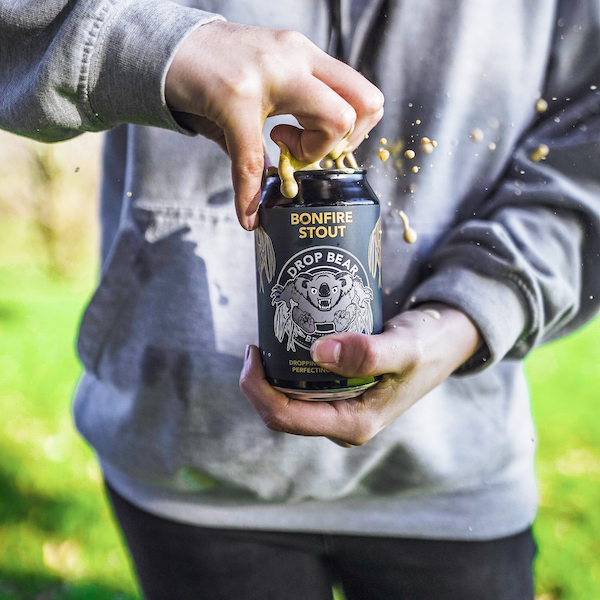 Photo courtesy of Drop Bear Beer Co
Photo courtesy of Drop Bear Beer Co
Irish Stout, 0.5 per cent ABV
Intended to accompany outdoor adventures and fireside entertainment, Drop Bear Beer Co’s Bonfire Stout is a vegan, gluten-free, low calorie beer moulded in the shape of an Irish dry stout. It is packed with notes of caramel espresso and dark chocolate, with a complex malt bill including roasted crystal, caramalt and flaked oats. US Chinook hops sprinkle in a spicy bouquet with suggestions of pine and grapefruit, but the real kicker is the delicate hint of smoke, a little nod by the Welsh brewery to German Rauchbier.
Sign up to The Parliament's weekly newsletter
Every Friday our editorial team goes behind the headlines to offer insight and analysis on the key stories driving the EU agenda. Subscribe for free here.